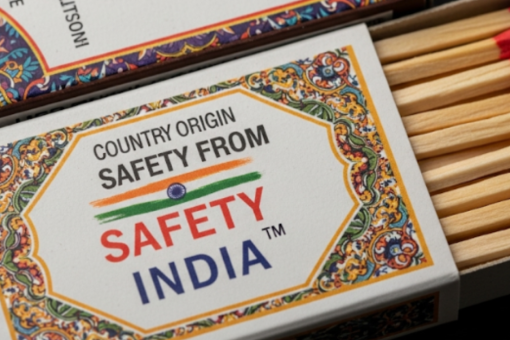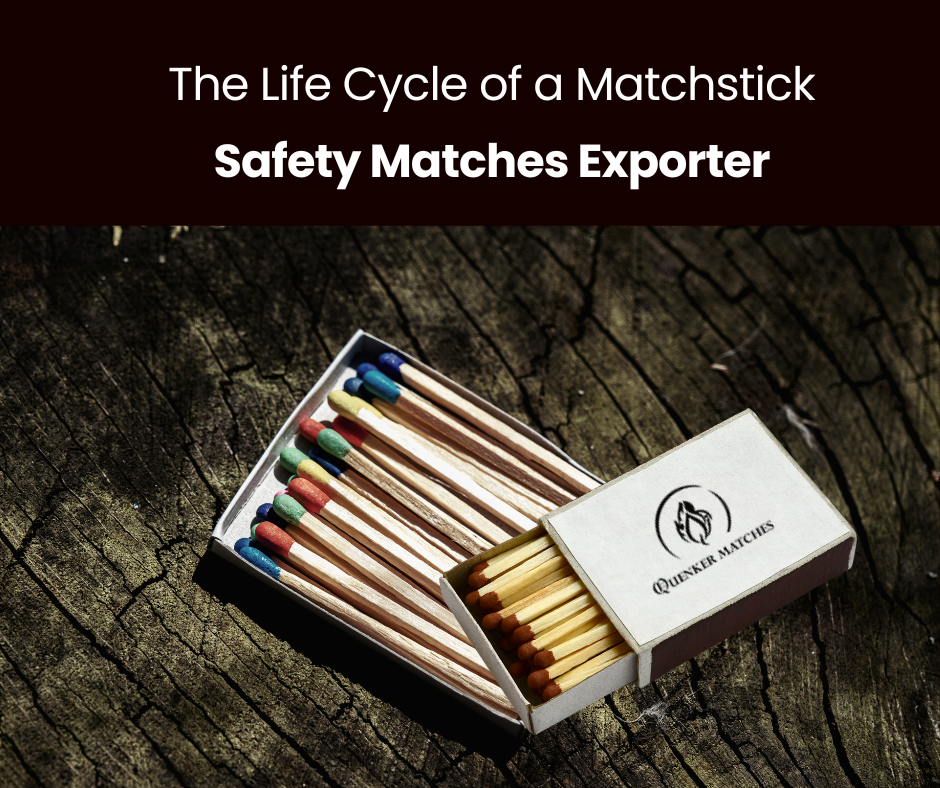
Why Do Safety Matches Manufacturers Matter Globally? (Top 10 Reasons)
Introduction
When you think of safety matches, you might imagine a small matchbox on your kitchen shelf or something to carry while camping. But behind that tiny tool is a global industry powered by innovation, employment, sustainability, and essential utility.
Safety matches manufacturers play a far more important role than we often realize — both locally and globally.
In this article, we explore the top 10 reasons safety matches manufacturers matter globally, and why they continue to be relevant in today’s fast-changing world.
1. Providing Reliable Access to Fire in Developing Regions
In many developing countries, particularly across Africa, Asia, and Latin America, safety matches are essential for daily living. They are used for lighting stoves, candles, and fires where electricity is unavailable or unreliable.
Thanks to the efforts of safety matches exporter and suppliers, these simple products are distributed in bulk to areas where modern ignition tools like lighters are unaffordable or impractical. This supports energy access in rural and low-income areas.
2. Boosting Local Economies and Creating Jobs
In countries like India, especially in regions such as Sivakasi, the safety match industry is a significant source of employment. Matchbox manufacturers hire thousands of workers—especially women and rural artisans—helping uplift communities and reduce poverty.
These manufacturers not only support local livelihoods but also help in building stable, self-sustaining economies through domestic production and international trade.
3. Promoting Eco-Friendly and Sustainable Products
As global awareness of environmental impact grows, eco-friendly safety matches are in high demand. Many manufacturers are now shifting to biodegradable match sticks, using non-toxic chemicals and recyclable packaging to minimize environmental damage.
This green transition helps the industry align with global climate and sustainability goals while offering consumers a safer, eco-conscious choice.
4. Serving Diverse Global Markets
Not all safety matches are the same. Safety matches manufacturers now cater to an incredibly wide variety of market demands. From customized safety matches for branding and gifts to waterproof and windproof options for outdoor enthusiasts, manufacturers continuously evolve to meet changing customer preferences.
This flexibility has helped matchbox manufacturers expand their reach in both the domestic and global safety matches market.
5. Maintaining Safety and Quality Standards
One reason for the sustained demand for safety matches is their reliability. Leading manufacturers adhere to international safety standards, ensuring that every matchstick burns steadily and safely.
This commitment to quality control builds trust with consumers and retailers alike, making safety matches suppliers key players in the consumer goods industry.
6. Powering Global Trade and Exports
Countries like India dominate the global safety matches export market. Indian manufacturers export millions of matchboxes every year to Africa, the Middle East, South America, and Southeast Asia.
Safety matches exporters contribute significantly to foreign exchange earnings while also helping import-dependent countries access cost-effective ignition solutions. This makes them an important part of international trade networks.
7. Playing a Role in Emergency and Survival Needs
Safety matches are an essential component in emergency kits, survival gear, and outdoor supplies. Whether it’s a natural disaster, power outage, or a weekend camping trip, safety matches are a reliable, low-tech solution for starting a fire.
Manufacturers continue to improve product durability with features like moisture-proof packaging and extra-long sticks, meeting the specific needs of outdoor and emergency-use consumers.
8. Driving Technological Innovation
Gone are the days of handmade matchsticks alone. Today’s safety matches production involves state-of-the-art machinery, automation, and quality testing equipment. Some factories even integrate AI-based sorting systems to improve precision.
By embracing modern technology, safety matches manufacturers increase productivity, reduce waste, and enhance product safety — all of which benefit both the manufacturer and the end user.
9. Enabling Brand Visibility through Customization
Many companies now use customized safety matches as branding tools. Hotels, restaurants, cafes, and wedding planners order personalized matchboxes with logos, taglines, or thematic colors for events.
This growing demand allows matchbox manufacturers to explore new B2B opportunities, transforming a basic product into a creative marketing solution.
10. Preserving Cultural and Traditional Practices
In various cultures, safety matches play an integral role in traditional ceremonies, religious rituals, and festivals. Lighting lamps, candles, or incense is often seen as a sacred act, and matchsticks are the tools that make it possible.
By consistently supplying quality matches, manufacturers help preserve these age-old customs around the world.
Top Export Destinations for Indian Safety Matches Manufacturers
Indian safety matches are in demand across the globe. Here are some of the top countries importing from leading safety matches exporters:
Nigeria
Ghana
Kenya
UAE
Saudi Arabia
Brazil
Sri Lanka
Yemen
Sudan
South Africa
Eco-Friendly Safety Matches: What Makes Them Sustainable?
As the demand for eco-friendly safety matches grows, here’s what makes them a sustainable choice:
Made from biodegradable wood or recycled paper
Non-toxic, phosphorus-free match heads
Recyclable packaging materials
Minimal carbon footprint during production
No plastic components
Safe for both indoor and outdoor use
Conclusion:
At Quenker Matches, we believe that even the smallest spark can ignite global change. As one of the leading safety matches manufacturers and matchbox exporters, we take pride in delivering high-quality, safe, and eco-friendly safety matches to customers around the world. Whether you’re looking for durable household matchboxes, customized promotional matches, or large-scale export solutions, Quenker Matches is your trusted partner in fire-starting solutions.
With decades of expertise, sustainable manufacturing practices, and a deep understanding of market demands, Quenker Matches continues to stand out in the global safety matches market. Choose us — where quality meets reliability, and tradition meets innovation.
Looking to source safety matches in bulk?
Contact Quenker Matches – India’s top safety matches exporter and manufacturer for unmatched quality, timely delivery, and global reach.









